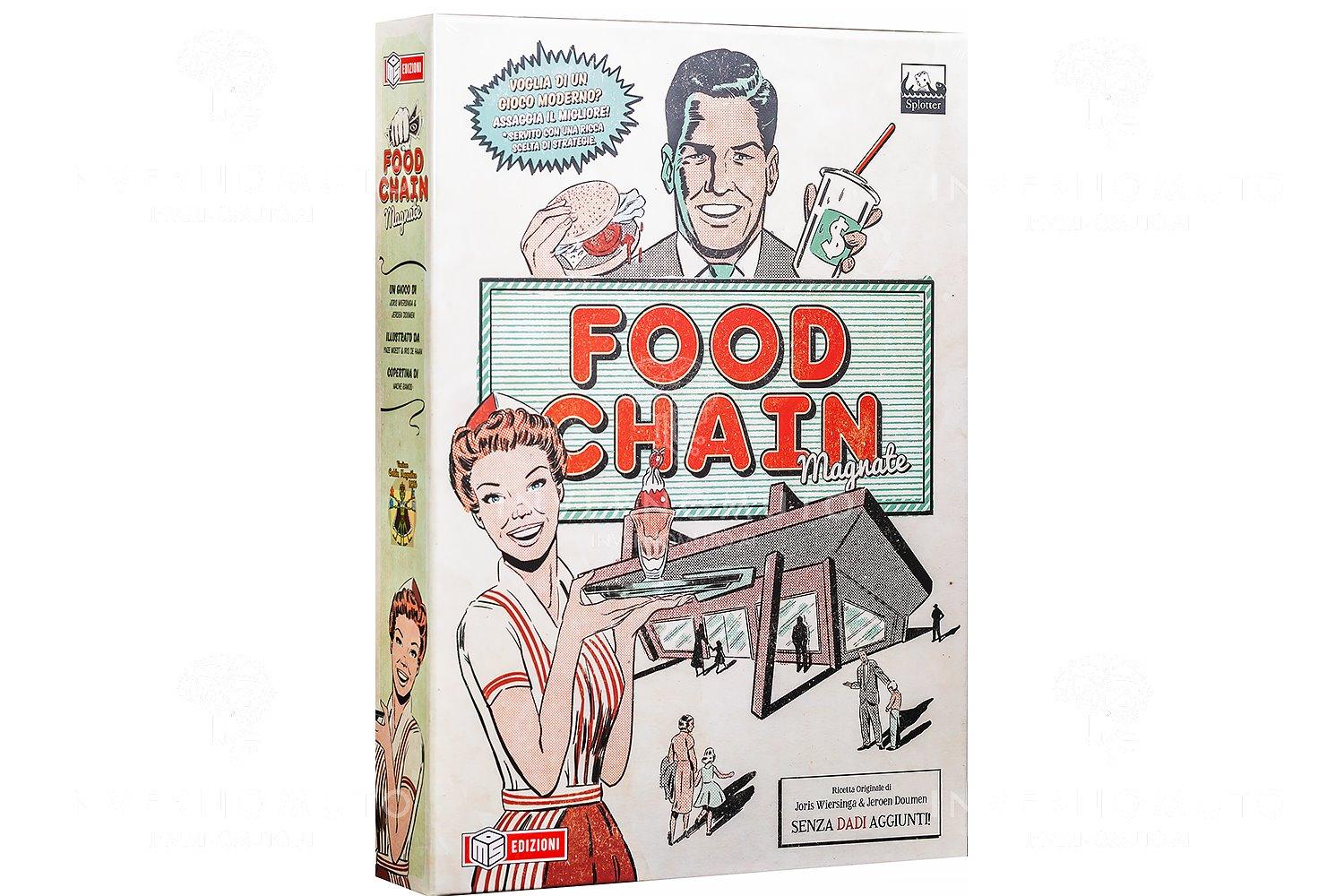Food Chain Magnate Board Game Review
Overview:
Name: Food Chain Magnate
BGG Weight: 4.21 / 5
Year Published: 2015
Publisher: Splotter Spellen
Designer: Jeroen Doumen, Joris Wiersinga
Number of Players: 2-5
Playing Time: 120-240 minutes
Game Category/Theme: Economic, Food industry
Mechanics: Deck, Bag, and Pool Building, Delayed Purchase, Income, Market, Modular Board
Ratings:
Strategy: 9.5
Complexity: 9.0
Player Interaction: 9.0
Replayability: 10.0
Game Rating: 9.4
Cost: 7.0
Calculations:
Weight Rating: (9.0 + 9.5) = 18.5
Playability Rating: [(10.0 + 9.0 + 9.4) – 9.0] = 19.4
Play Rating Score: (18.5 + 19.4) * 2 = 75.8
Value Rating: 75.8 / 7.0 = 10.83
Final Score Rating: 75.8 + 10.83 = 86.63
Review:
Food Chain Magnate is a highly strategic economic board game that places players in the role of CEOs of competing fast food chains. Players must hire and train employees, develop their infrastructure, and market their products to outcompete their rivals. The game offers a wide range of strategic options, as players can choose to focus on different aspects of their business, such as advertising, hiring, or expanding their network. The game’s mechanics are well-balanced, and the variable player powers offer unique challenges and opportunities for each player. The game is complex and requires careful planning and execution, but the payoff is a highly rewarding and engaging gaming experience.
Food Chain Magnate does not offer solo or cooperative play, as it is a competitive game. However, the game’s high replayability and strategic depth make it well-suited for repeated plays with a group of friends or gaming group.
For gamers who enjoyed Food Chain Magnate, here are 10 other games that may appeal to them:
- Power Grid: A highly strategic economic game where players compete to build and power the most efficient power grid network.
- Agricola: A classic worker-placement game where players manage a farm and strive to become the most successful farmer in the area.
- Terraforming Mars: A sci-fi game where players compete to terraform Mars by strategically managing resources and building infrastructure.
- Scythe: A game of resource management, area control, and strategic combat set in a dystopian alternate history 1920s Europe.
- Brass: Birmingham: An economic game set in the industrial revolution of 19th century England where players develop their networks of industry, rail, and canals.
- Puerto Rico: A classic economic game where players manage plantations, produce goods, and ship them to earn victory points.
- Through the Ages: A civilization-building game where players lead their civilizations from antiquity to modern times through strategic resource management and technological advancements.
- Concordia: A game of strategic resource management and expansion where players control trade routes, develop infrastructure, and gain influence in ancient Rome.
- Splendor: A fast-paced game of card drafting and resource management where players strive to become the most successful gem merchant.
- 7 Wonders: A card-drafting game of civilization building where players compete to develop their civilizations and become the most successful.
This review was provided by Open Source Artificial Intelligence programs. It uses a series of complex statement to have AI programs amalgomate their databases to produces information on board games. These reviews are completely unedited output from the AI bots.

